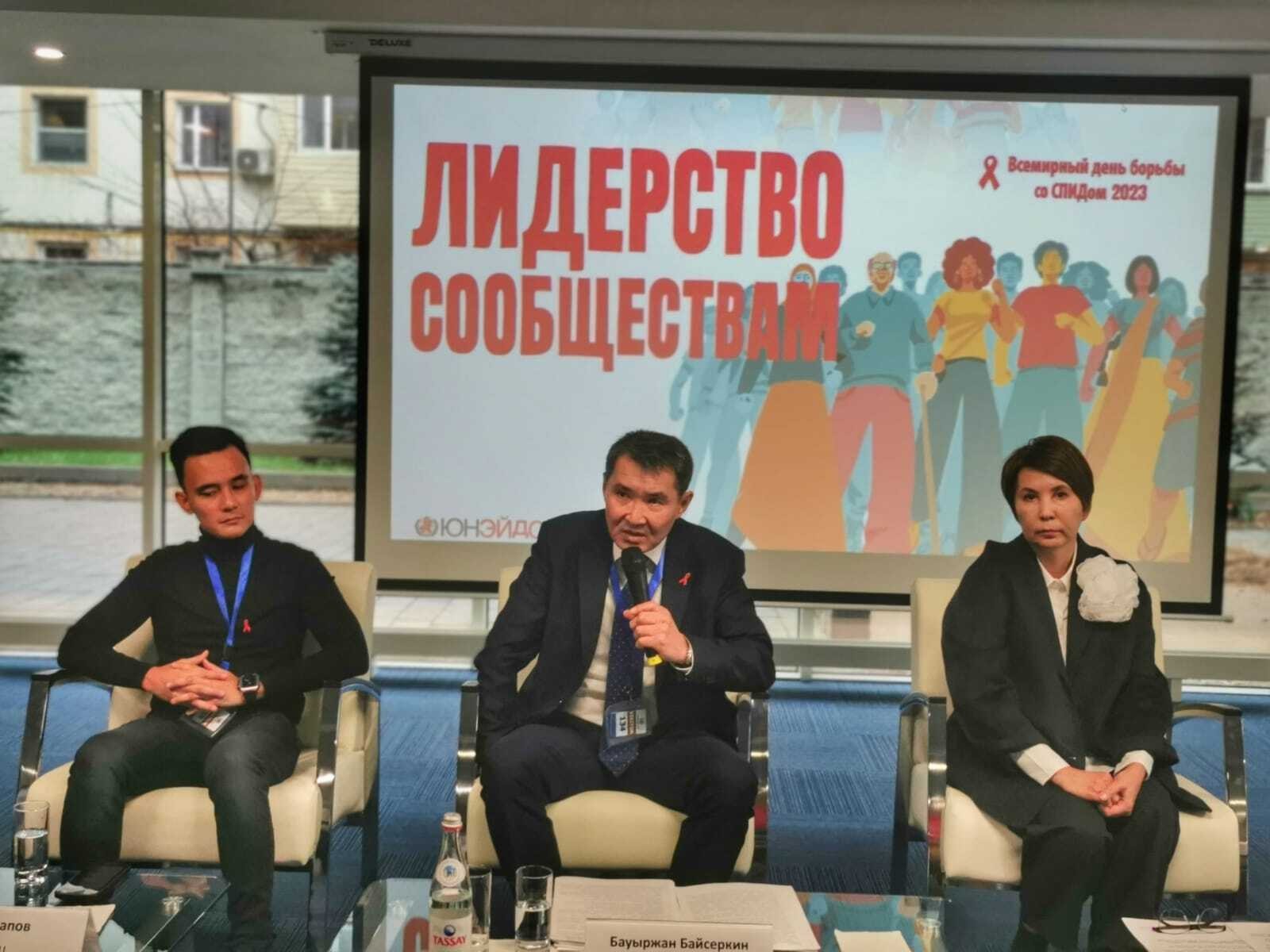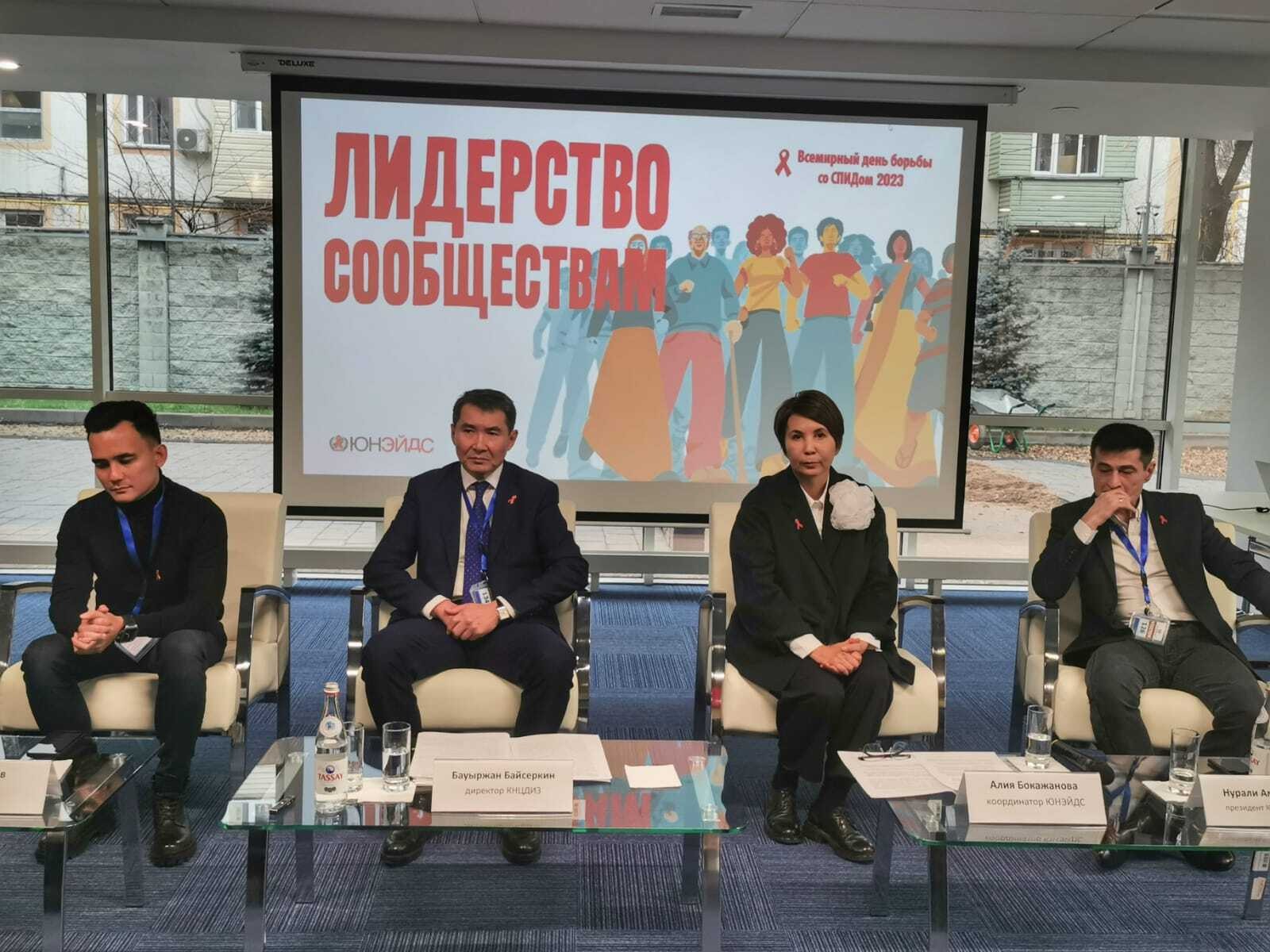
Обычная версия сайта
Republic of Kazakhstan, Almaty, Raimbek Ave., 60
Location map+7 (727) 39742 23 Reception
+7 (727) 39742 17 Registry
+7 (727) 39742 06 Helpline
1414 Single contact center


Обычная версия сайта
Republic of Kazakhstan, Almaty, Raimbek Ave., 60
Location map+7 (727) 39742 23 Reception
+7 (727) 39742 17 Registry
+7 (727) 39742 06 Helpline
1414 Single contact center

December 1, 2023
The joint effective activities of State, international and non-governmental organizations of the country illustrate their effectiveness in combating HIV. For the first time, there has been a downward trend in the detection of new cases of HIV infection in the country.
Over the past five years, as a result of the measures taken, there has been a decrease in important indicators, such as: AIDS mortality, morbidity per 100,000 population, two of the three transmission routes – parenteral (through blood) when injecting drugs and from mother to child.
As a result of ongoing anti-epidemic measures, Kazakhstan is in a concentrated stage of the HIV epidemic with a prevalence of 0.3% of the population in the 15-49 age group with a global average of 0.7% (39 million people living with HIV in the world, 2 million of them in the EECA countries). HIV infection is mainly concentrated in key population groups (KGN) and their environment.
Every year more and more Kazakhstanis want to know about their HIV status. More than 10% of the population is tested in the country every year.
Today, the diagnosis of HIV infection is no longer a fatal disease. Thanks to the achievements of modern medicine, HIV is recognized by WHO as a chronic infectious disease. People living with HIV (PLHIV), using antiretroviral therapy (ART), can live a long and high-quality life, have families and healthy children.
- As part of the implementation of the goal of the UN Political Declaration of 2021 and the goals of UNAIDS 95-95-95 in Kazakhstan, 87 percent of people living with HIV are aware of their HIV status, 87 of them are taking ART, 88 percent have a reduced viral load, - said Bauyrzhan Baiserkin, Director of the Kazakh Scientific Center for Dermatology and Infectious Diseases of the Ministry of Health of the Republic of Kazakhstan.
In five years, prices for antiretroviral drugs have decreased in the country by 2-40 times. Financial savings made it possible to double the coverage of ART for PLHIV and include five new innovative antiretroviral drugs with high treatment efficacy and safety profile in the list of GOBMP. Today, 18 ARV drugs are included in the List of medicines and medical devices for free and (or) preferential outpatient care.
All 12 directions of preventive programs recommended by WHO have been implemented in the Republic of Kazakhstan. A key innovation in the prevention strategy is the introduction of pre-contact prevention. Today, 4,793 clients receive it.
The motto of the UNAIDS Global Campaign dedicated to World AIDS Day is "Leadership for Communities". NGOs are a permanent partner of the state in overcoming HIV infection. Communities connect people with human-centered public health services, build trust, innovate, and monitor policy implementation and service delivery. Outreach workers and volunteers have better access to the KGN environment. They carry out preventive measures and rapid testing, distribute condoms and syringes, and redirect them to AIDS centers for final confirmation of the diagnosis.
Over the year, thanks to social contracting in the country, the number of NGOs working with key groups and receiving a state social order increased from 5 in 4 regions to 14 in 10 regions. 158 cases of HIV infection were detected in 10 months of 2023 with the participation of NGOs. The increased involvement of NGOs contributes to the effectiveness of government measures in achieving the HIV response.




